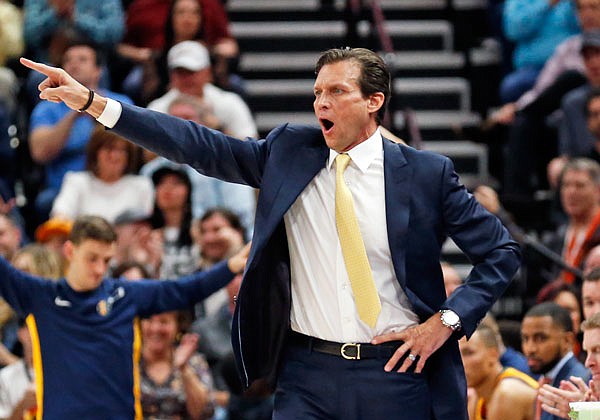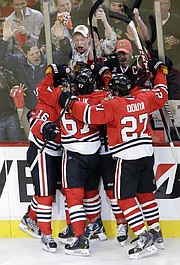While athletes dream of winning championships and making millions of dollars, there's also the other end of the spectrum, where mistakes are magnified because you're a public figure.
There are athletes like Aldon Smith, who are extremely talented but can't stay out of trouble long enough to stay on the field. When was the last time Smith was in the news because of his football prowess? If you can't remember, well, you're not alone.
Then there are others like Quin Snyder, Missouri's former men's basketball coach who made some mistakes along the way, took his lumps, regrouped and took advantage of his second chance.
I've been a fan of Snyder's from the get-go. I remember watching him give halftime interviews during the 1999 NCAA Tournament, when he was an associate head coach at Duke, and thinking he was perfect to take over the Missouri job.
Hindsight is 20/20, which is why some Tiger fans complained years later about Missouri not hiring Bill Self, who was then at Tulsa, or John Calipari, who had just been fired by the New Jersey Nets.
But I was - and still am - perfectly fine with Missouri taking a chance on Snyder, who was essentially Mike Krzyzewski's right-hand man. Snyder was 32 years old, the same age his predecessor, Norm Stewart, was when he was hired by Missouri in 1967. This seemed like a match made in heaven.
And it did at first, especially when Snyder led the Tigers to the NCAA Tournament in each of his first four seasons. That included an Elite Eight run in 2002, when Missouri, a No. 12 seed, became the lowest seed to advance that far in tournament history.
All was going well for Missouri, which was about to open a new state-of-the-art arena, and it appeared Snyder might become a mainstay with the Tigers. But it wouldn't last.
Within a year, Snyder and his staff were charged by the NCAA with recruiting violations. While a postseason ban was not part of the punishment, it was enough to give Snyder's legacy a black eye.
Then Missouri failed to make the NCAA Tournament one year, and the year after that. When the Tigers lost six straight games during the 2005-06 season, Snyder resigned, unsure if he would ever coach again.
Snyder could easily have fallen back on his law degree or his MBA, but after a year off, he decided to get back into coaching. He took a job outside the limelight, as a head coach in the NBA's D League (now the G League) with the Austin Toros.
He would stay there for three seasons before bouncing around, year to year, from one assistant coaching job to the next. Snyder finally worked his way to the top when he hired to take over the Utah Jazz during the summer of 2014.
At that time, the Jazz were in the cellar of the Western Conference, but unlike his stop in Missouri, Snyder didn't have to meet an extremely high bar from the start. In his third year, he got Utah back into the playoffs, and the Jazz won their first playoffs series in seven years before losing to the Golden State Warriors, who went on to win the NBA title.
Snyder had already exceeded expectations, but the 2017-18 season would be tough on him. The Jazz lost their two leading scorers, Gordon Hayward and George Hill, to free agency, leaving many to think the departure would take a hit on this year's team.
Instead, Utah drafted Donovan Mitchell, who led the Jazz in scoring this season and is a candidate for NBA rookie of the year, to lead the way.
Utah was nine games below the .500 mark in late January, then reeled off 11 straight wins. The Jazz also had a nine-game win streak last month and won 29 of their last 35 games to end the regular season.
In what should have been a rebuilding season, Snyder guided Utah to a 48-34 record in a brutal conference. Had Utah been in the Eastern Conference, he probably would have won 55 games.
Last week, Kobe Bryant endorsed Snyder for NBA coach of the year. I may be biased, but heck, I will too.
In an era where people seldom seem to take responsibility for wrong-doings, Snyder's story of redemption is a breath of fresh air. He deserves to be rewarded for making good of his second chance.


